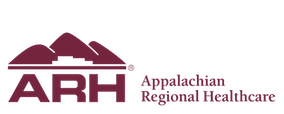4 Incredible Resume Tips You’ve Probably Never Heard Before
In today’s job market everyone needs a resume, and those in healthcare are no exception. More and more healthcare related careers are requiring resumes as a part of the hiring process and in order to be competitive, you need to make sure your resume is well written and sets you apart from the crowd. Does your current resume separate you from your peers?
Shelcy Joseph, Forbes Contributor, has some incredible resume tips that we think are worth reading. We think #3 is particularly important! See what she has to say below.
Yes, recruiters only spend six seconds reviewing your resume.
No, this doesn’t mean you shouldn’t spend time on it.
You know the dream job you’ve been eyeing on that company’s website? Your resume is the first thing that’ll get you considered for it—granted you tell your professional story in a compelling way.
Of course, it’s easier said than done. How can you compact your experience in a concise, yet interesting and relevant way? This is where Career and Negotiation Strategist Claudia Telles comes in. She shares her top tips for writing a resume that will successfully pass the Applicant Tracking System (ATS)—and get your foot in the door of any company.
Have a summary section and mention the role you’re applying for
Here’s an example of what it may look like:
SUMMARY: As a motivated, ambitious and self-directed individual with [hard and/or soft skills], I’m ready to leverage my experience in [skills] for a [Job Title you’re applying for] role.
When the Applicant Tracking System (ATS) scans your resume it looks for the position title. If you include the role in your resume it will help you rank higher and increase your chances of it being seen by the recruiter.
Include both soft and hard skills under the skills section
Hard skills are skills you can prove you have. Example: coding, creating and managing a budget, advertising on Facebook, etc. Soft skills are harder to show or measure. Example: entrepreneurial spirit, collaborative attitude, organization etc. Include both sets under the skills section. Hiring Managers don’t necessarily spend too much time here but it’s important to mention it to help you rank higher in the ATS system and put your resume on top of the pile.
Be sure to avoid words like hard worker because it’s already assumed you are. Plus, it’s just cliche and overused.
Mention your biggest achievement as the first bullet point in every role
Since you only have 6 seconds to make an impression and land an interview it’s important to be strategic. Your first bullet point should be your biggest achievement at work. Impress them right away by sharing something they’ll find relevant or have questions about.
You don’t have to describe every task associated with each position you’ve held. Aim to have 2-4 bullet points under each role. Share just enough to capture their attention.
Here’s a trick I use to decide if a bullet point is strong and worth mentioning it. Read the bullet point and ask yourself, “how is it relevant?”. The key here is to be as specific as possible, yet concise.
Here’s a quick example:
- Increased sales year over year
This is too vague. Consider this instead:
- Increased sales by ~27% for the past 5 years by implementing a new marketing strategy that enabled me to get more qualified leads.
Be sure to include detailed information and back up your achievements with numbers whenever possible.
Make sure your resume aligns with the job description
Use this free tool called Jobscan to see how well your resume matches with the job description. It tells you what keywords you’re missing and it gives you an opportunity to get creative and include it in your resume. Aim to get more than a 65% match before submitting your job application.
To read the original blog on Forbes.com, click here: https://bit.ly/2ILKiae



